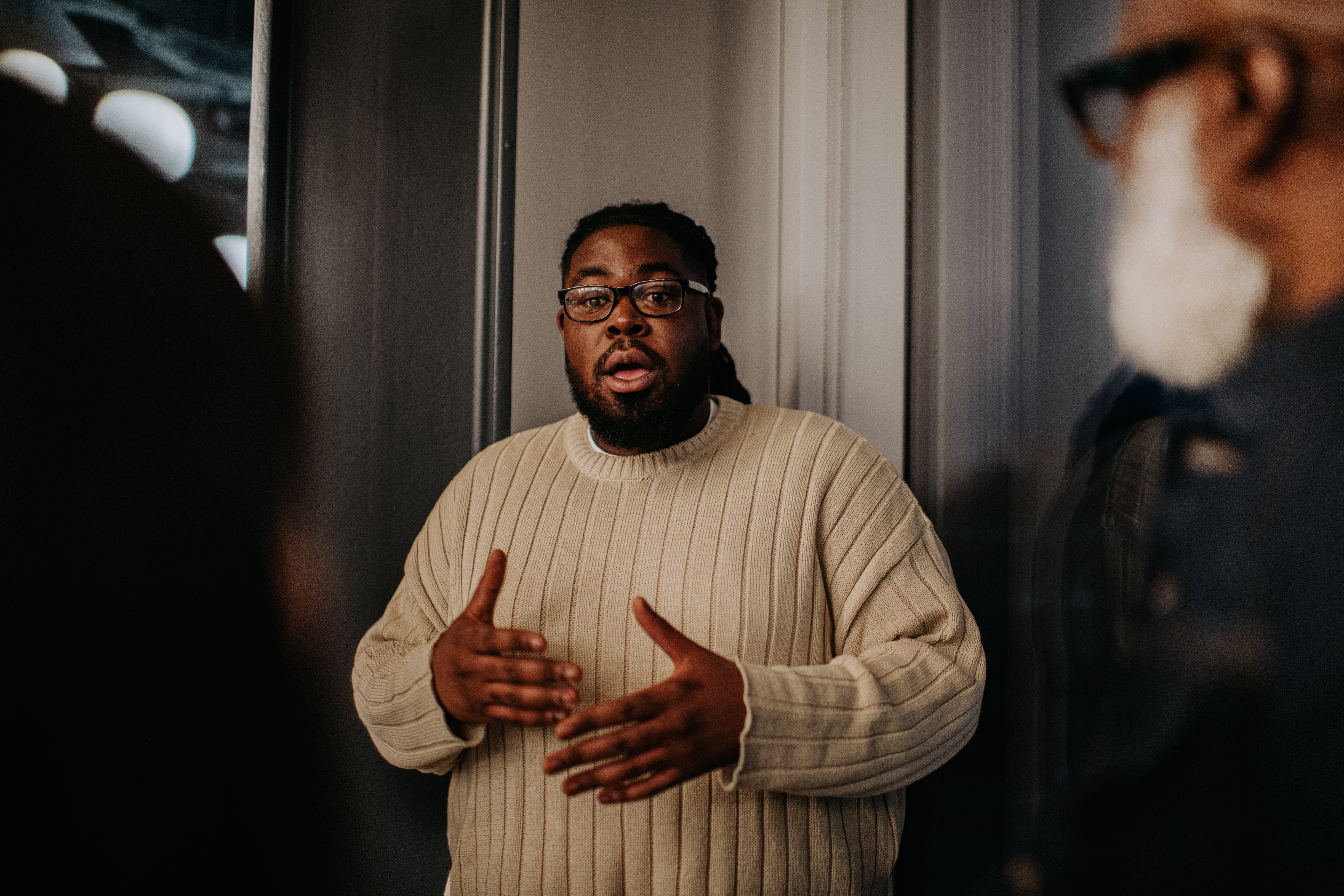ARTICLE AD BOX
You’re laughing with friends, perhaps enjoying a few drinks down the pub, when all of a sudden, one of those friends drops a clanger of a comment that hits you sideways. Maybe it’s political, maybe it’s personal, but whatever it is it’s a gut punch that lands in direct opposition to something you strongly believe in.
An awkward silence. Your jaw tightens. You scan their face for a trace of irony, but there’s none to be found. Now what?
In that moment, you have a choice. Do you launch into a rebuttal, flinging facts and stats like ninja stars, risking an evening of tension and raised voices? Or do you shut down, politely nod, change the subject, and leave the disagreement to fester quietly beneath the surface?
This moment, with all its visceral discomfort, is something we all recognise. The physical response to conflict is real: adrenaline surges, heart races, breath quickens. We’re wired for fight or flight, and difficult conversations trigger both instincts. Either we go to battle or we retreat.
And therein lies the problem: we’re losing the ability to do anything in between.
Nuance versus viral outrage
Social media supercharges this dynamic. Platforms supposedly designed to connect us can drive individuals further apart, with disagreement online becoming less about discussion and more about demolition. A 2021 study by the Pew Research Center found that 64% of people say social media has a mostly negative effect on how things are going in their country, with political division and misinformation topping the list of concerns. It’s a space where nuance is drowned out by viral outrage and where algorithmic echo chambers reinforce rather than challenge our views.
In this climate, it’s easy to point fingers; to blame “them” for being unreasonable, misinformed, or even dangerous
In this climate, it’s easy to point fingers; to blame “them” for being unreasonable, misinformed, or even dangerous. But the hard truth is, it’s not just them, it’s all of us. We’re all participants in this culture of binary thinking whether we realise it or not. And if we want things to change, we have to start by looking inward and recognising our own reflexes and assumptions, and then choosing to engage rather than to avoid.
The stakes are too high not to. We’re living through volatile, uncertain and complex times. From the cost-of-living crisis and global conflicts to the climate emergency and the rise of fake news, the challenges we face require cooperation, not competition. We need solutions, not slogans, and we sure won’t find those solutions by shouting past each other or retreating into ideological corners.
A fractured global landscape
The World Economic Forum’s Global Risks Report 2025 paints a sobering picture of our current trajectory. Societal polarisation ranks as the fourth most severe risk over the next two years, closely tied to inequality, which holds the seventh spot. These fractures are not just social, they’re systemic, threatening to destabilise political and economic institutions worldwide.
What’s more, nearly one in four experts surveyed identified armed conflict as the most pressing global risk for 2025, surpassing concerns like extreme weather and economic instability. This escalation underscores how deeply divisions, be they ideological, political, or social, can erode the foundations of global cooperation.
Time to lean in

So what’s the answer? It all starts with accepting the discomfort of disagreement, asking better questions and listening with the aim of understanding rather than winning. That doesn’t mean compromising our values or avoiding difficult truths. It means being curious about how others see the world, recognising the humanity behind every opinion, and searching for common ground, however small. It means moving forward together, even – maybe especially – when we don’t see eye to eye.
We’ll never know how long old Socrates might have lasted on X before begging Zeus to lightning bolt the lot of us
This isn’t a new idea, of course. More than 2,000 years ago, Socrates was already showing us how it’s done. He understood that disagreement “done well” was essential to the pursuit of truth. His method of asking questions, challenging assumptions and encouraging others to do the same, wasn’t about scoring points. It was about progress, growth and building something better through conversation. Although we’ll never know how long old Socrates might have lasted on X before begging Zeus to lightning bolt the lot of us…
The spirit of open, critical dialogue has long been associated with universities. They are, in many ways, the heirs to Socrates’ legacy; spaces where ideas are tested, where disagreement is part of the learning process, and where diverse perspectives are meant to coexist in meaningful tension.
In today’s climate, that ideal is being tested. Protests, polarisation, and real concerns about safety, speech, and belonging have created complex and often painful challenges on campuses around the world. But in spite of these difficulties, and in many ways, because of them, universities remain among the best places we have to model what it means to disagree well: to be rigorous but respectful, passionate but principled, open but discerning.
Universities remind us that the goal isn’t to be right all the time, but to get it right eventually
They remind us that the goal isn’t to be right all the time, but to get it right eventually. It’s a process, and it requires courage, humility, and a willingness to sit across from someone who sees the world differently and still choose to talk.
Moving forward together
And that’s what we need more of right now. Not more dead certainty, outrage, or noise, but more conversation. Messy, thoughtful, honest conversation, whether it’s in the pub with friends, across the seminar hall or being represented on our screens and streets.
Disagreeing well isn’t about who wins, it’s about how we move forward together. In an age defined by division, the ability to sit with difference, to challenge without contempt, and to talk without tearing down isn’t just a nice-to-have, it’s essential. “Why disagreeing well could save us all” isn’t hyperbole or just a catchy headline; it’s a quiet truth hiding in plain sight.
Civil debate – honest, open, and grounded in respect – might just be one of the most powerful tools we have. The question is: are we ready to use it?
UCL’s DISAGREEING WELL PROGRAMME
Find out more
UCL’s Disagreeing Well programme looks at how we can coexist in a diverse community where many differences of opinion are passionately held and personally felt. By approaching disagreements with respect, curiosity and a desire to learn, we can nurture understanding and solve shared problems.
Find out more about the campaign, including past and upcoming events, and free skills-based resources, on UCL’s Disagreeing Well website.









 English (US) ·
English (US) ·